Maxim Novikov: ‘TAIF-NK ended 2022 with a gain’
TAIF Combi Cracking in action, truly high oil refining, search for new partners and outlets: what the last year is remembered for and what plans TAIF-NK makes for 2023
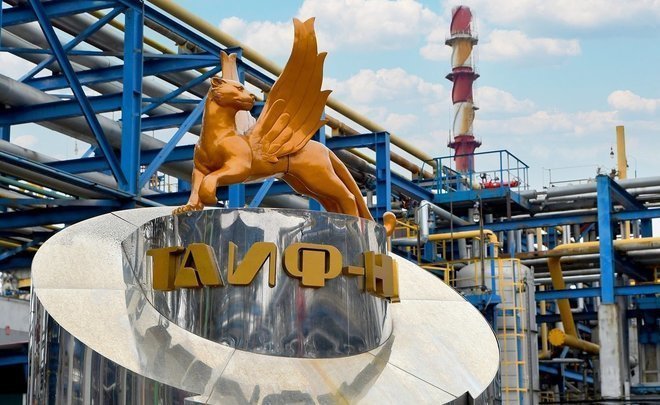
Russia’s economy has been developing under the growing sanctions pressure of united Europe, USA and other unfriendly countries that joined them for nearly a decade now. The biggest wave of negativity from Russia’s former economic partners was precisely in 2022. We cannot say that every strike of the West misses the target, but nine sanctions packages that have already been imposed haven’t obviously reached the result the initiators of the restrictions hoped for. Read in Realnoe Vremya’s report how the situation in the oil refining sector and for TAIF-NK in particular unfolded last year.
Deceived expectations
Nine sanctions packages, over 11,000 bans and restrictions that have affected all areas and sectors of Russia’s economy. It is no surprise that forecasts for the possible development of events and the general economic performance at the end of the year sounded extremely cautious and even moderately pessimistic as early as early 2022.
In September 2022, at Eastern Economic Forum (in Vladivostok), it was assumed that oil production by the end of the year could decrease by 2%, while the processing of liquid hydrocarbons by 8%.
The reality cheated the expectations. In a good sense of the word. The production of liquid hydrocarbons in the country in 2022 kept the positive dynamics and rose by 2% compared to the result in 2021: 535 million tonnes against 524,5 million tonnes.
“Russia is so far withstanding the sanctions as external pressure to the economy of the country quite well. A package of measures taken by the government to increase the stability of the economy amid the sanctions in general address the West’s challenge. The Russian government notes that the economic sanctions will unlikely seriously influence the Russian oil sector: Russian companies do not sell oil at a loss, whereas the Asian and Near Eastern markets are open and ready for cooperation,” notes expert of OMT-Konsalt Larisa Kamkina.
Russian oil processing worked in 2022 with a gain: instead of a 8% fall, the sector showed a 5% rise in volumes. Russian Vice Premier Alexandr Novak provided these figures. In an interview with Russia 24 TV channel, he stressed: “Quality oil products are needed for our domestic market, for exports that have stayed at about last year’s level.”
“Oil processing is in demand and profitable in the world”
“We can note for the whole oil processing industry that 2022 was unexpectedly successful. It might seem the geopolitical situation is so tense, however, oil processing in the world is in demand, economically feasible, profitable. Particularly we, TAIF-NK, also ended the year with a gain,” Director General of TAIF-NK JSC Maxim Novikov told Realnoe Vremya in an interview.
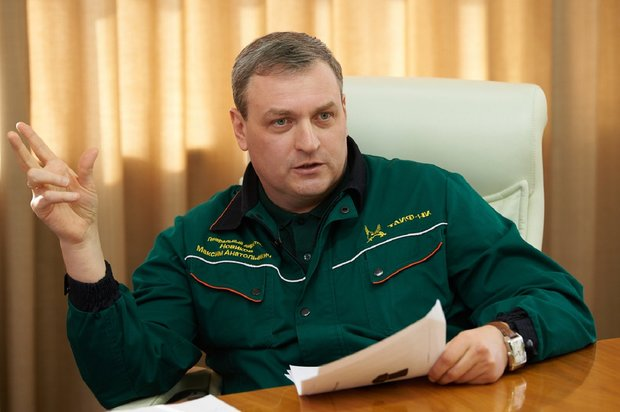
According to Maxim Novikov, it is year early to talk about accurate numbers in the total amount of feedstock processing and the whole assortment of products (Editor’s note: it is over 40 product names): all this data will be made public at the final meeting of the Board of Directors and the general meeting of the company’s shareholders. As for the brightest moments and successes in 2022, TAIF-NK has what to be proud of and what to tell. The launch of the Heavy Oil Residue High Conversion Facility in late 2021 was and remains the key event.
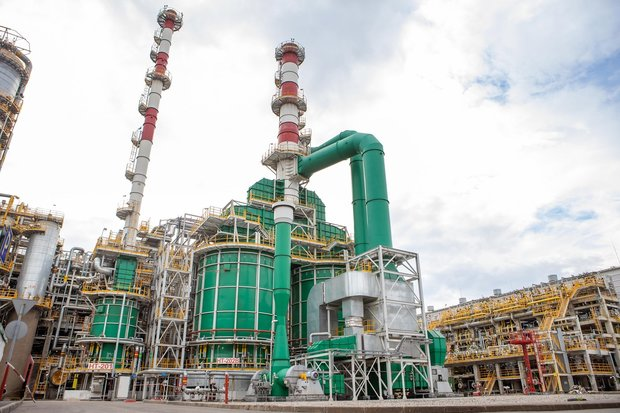
“We have fixed the success in the crude oil processing rate and the recovery of light oil products, which is more important. Last year, this indicator was 87,3%. If last year, it was a bit more than 80%, now it is 87,3%. We can single out December, the average monthly indicator was 94,5%. We can say we have almost approached the planned numbers. 2022 became a year of reaching planned numbers. And I think it is a success,” Director General of TAIF-NK JSC stressed in a talk with Realnoe Vremya’s journalist.
Big future lies with VCC
Many experts Realnoe Vremya’s journalists have managed to talk with agree with this opinion. So Tamara Kandelaki, a professor, doctor of economic sciences, director general of InfoTEK-Konsalt emphasised during an online conference held by our online newspaper:
“TAIF-NK’s Heavy Oil Residue High Conversion Facility is a very interesting project because all technological chains in oil processing are long known. Of course, they modify with time, but in essence the classic technology doesn’t change. Tar processing remains the main trouble in oil processing around the world. The better its processing, the higher the production productivity. Therefore traditional tar processing technologies aimed to produce coke and bitumen have restrictions in production sale. Unlike them, the Heavy Oil Residue High Conversion Facility became the first to work with the Veba Combi Cracking (VCC) technology in the world — it envisages the production of another set of products. It is the world’s first unit of this kind, it is very interesting. And if it runs smoothly, this process has a big future,” the expert believes.
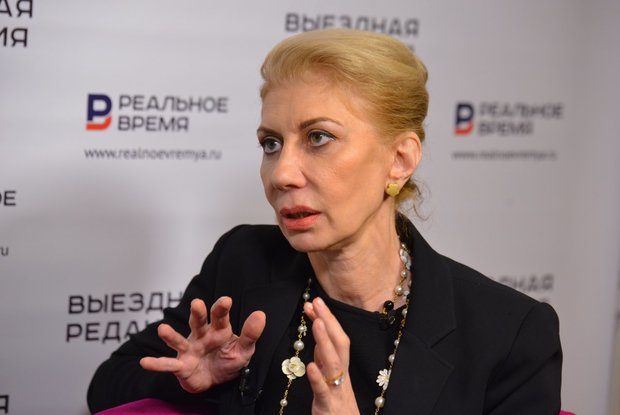
Development vectors of heavy oil and heavy oil residues were discussed at the first specialised international conference in Kazan late last year. One of the key speeches here was also dedicated to TAIF-NK’s successes in this area. The response of correspondent member of the Academy of Sciences of the Republic of Bashkortostan, Doctor of Technical Sciences, Professor Elshad Telyashev was the brightest and most illustrative.

Going deeply into the history of developing an immature technology where the management of the company managed to notice huge prospects, the professor couldn’t withhold his emotions:
“In the case of TAIF, it is a technological breakthrough. A team that got an unfinished processed in its hands, that wasn’t implemented in the way it was presented by the licensor, shaped it itself. It is in fact TAIF Combi Cracking, not Veba Combi Cracking. No joking, absolutely seriously,” Elshad Telyashev emphasised.
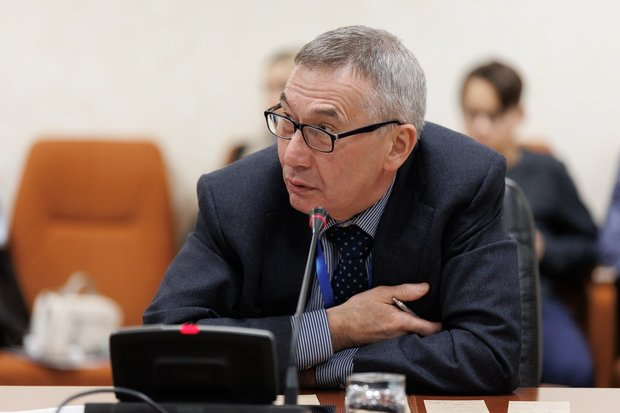
Nelson Index
With the launch of the facility and the Nelson Index that skyrocketed to 11,34, TAIF-NK cemented a place on the list of the country’s most innovative oil refineries. However, as the company itself notes, even through this indicator starts to be widely used as professional slang trying to drive out some obsolete concepts as processing rate, it would be a mistake to focus on it only. Niyaz Khamidullin, head of the Reequipment and Promising Development Department of TAIF-NK JSC, helped to sort the nuances out.
“The processing rate indicator is more than 70 years old. Over this time, some have learnt to easily manipulate it by simply changing the names of products. While the Nelson Index is a globally accepted method of evaluation of the efficacy of oil refineries. In fact, it is the complicacy of oil refineries: the higher the index, the more sophisticated oil processing processes in the plant. And the more oil products the plant itself makes. So the plant itself becomes more valuable,” noted Niyaz Khamidullin.
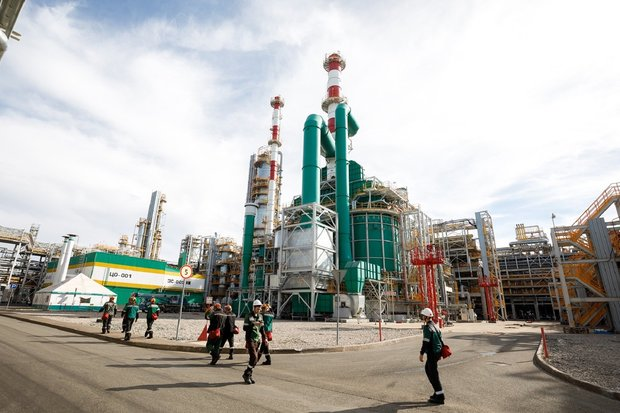
Converting it into a mathematical formula: the primary crude oil processing unit is used as unit to calculate the complexity coefficient. The more complex other units increasing the efficacy of the operation of the oil refinery, the higher their coefficient and the better their total result:
“So the complexity coefficient of bitumen production is 1,5, while our VCC tar hydrocracking is 9. But one shouldn’t look at the Nelson Index and the conversion rate in oil refining only, it is also necessary to consider such an indicator as the recovery of light oil products.
I will put an example. According to InfotTEK, one of the Russian oil refineries had the Nelson Index in 2021 even higher than at TAIF-NK. It is equal to 12,14, whereas our Nelson Index is 11,34. At the same time, their recovery of light oil product is equal to 63%, ours is 80,7%. With this indicator, we are first in Russia. And this is not the limit for us. In other words, it isn’t so clear, and all indicators should be considered altogether,” the specialist believes.
Reply to challenges
We cannot say thatlast year everything was simple and rose-coloured for Russian oil refiners, particularly TAIF-NK. The management of the company paid attention to this too.
“What did we face? First of all, the exit of many licensors from the Russian market: equipment, spare parts, software, catalyst, reagent suppliers. 2022 was so intense for us, strained in terms of the search for substitute for all this. In fact we replaced signature additives, reagents, almost all catalysts. We try to make sure most of these products are of Russian origin. The experience showed that what is made in one’s homeland is more reliable and safer. We switched to analogues from friendly countries where it was impossible,” chief engineer of TAIF-NK JSC Alexey Khramov talked about the problems that are solved and successes.
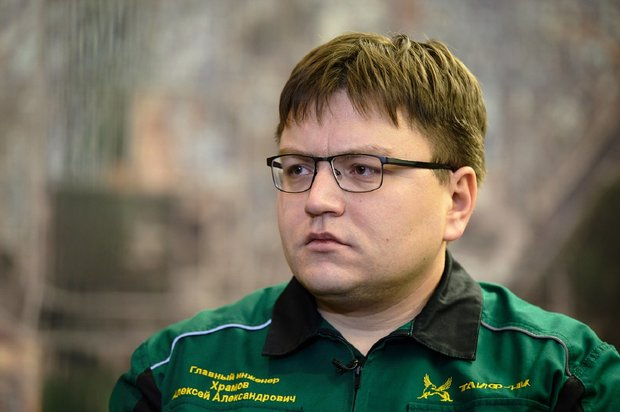
Also, a job is done to replace imports of spare parts for equipment, repair and maintenance of all plants of the company.
“We have people to work with. The only thing is that an alternative should not only be found but also somehow adjust the production of our new partners for ourselves: it is necessary to get to know each other well to provide a reliable and good transition from original spare parts, perhaps even from original equipment, which was spelt out in basic projects first. The process doesn’t stay still, moreover, it didn’t start last year. The government of the country paid attention to the necessity of import substitution a long time ago and in general we are ready for work today. A 3D scanning and getting the blueprints of elements and spare parts of used equipment is underway now, quality production, instalment of these parts in place and analysis of the operation of analogues of original spare parts are adjusted,” Director General of TAIF-NK JSC Maxim Novikov added.
“We do not look for excuses, we look for opportunities”
The quality of products of TAIF-NK JSC is unchangeably high, which is annually confirmed by including awards of the most prestigious quality contests. Late last year, five types of product of the company at once received diplomas and became laureates of the federal quality programme 100 Best Products of Russia.
The geographical footprint of the wide range of products of the oil refining company was and remains big. Destinations change. But even this happens gradually, Maxim Novikov shared with Realnoe Vremya’s journalist.
“Nobody has cancelled market laws, and the products are sold where it is more profitable. At the moment the situation allowed profitably send products to previous destinations, they went to the West too, let’s say. At the same time, together with traders we considered the redistribution of flows, the direction of flows, as you perfectly know, many are looking southwards. We are not an exception. Of course, there is an alternative to the situation changing in the market. Also, our shipping to the domestic market increased, supplies at our petrol stations augmented.
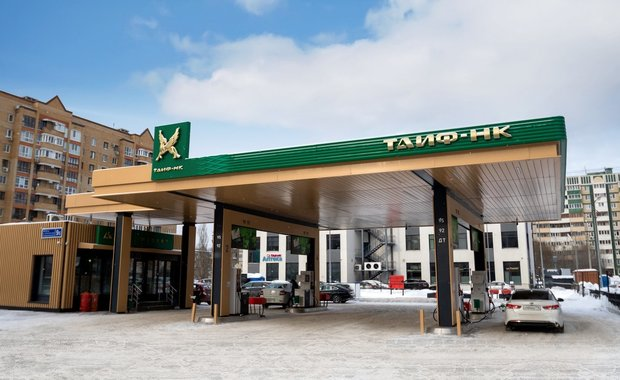
“People are right to say that you will develop when you leave your comfort zone. And only the cross-wind has the buoyancy. The theory of the challenge is a reply to the problem. And when you solved it, you bolstered your self-esteem, believed in yourself. But most importantly, you got new knowledge. There is huge development in this fight, especially to overcome these sanctions. We get new precious experience. And what I especially like is that I see that we, refiners, turned towards to a Russian equipment manufacturer. Yes, there are many questions there: Mercedes drives better than Lada Granta, but they perform the same function. The best part is that seeing the demand, seeing the necessity of our products, Russian suppliers of devices, suppliers of xylit, suppliers of reagents will try to develop and improve the characteristics of their products. All this not only the development of TAIF-NK but also that of our suppliers,” chief engineer of TAIF-NK Alexey Khramov believes.
Head of the Production and Commercial Department of TAIF JSC Leonid Yegorshin agrees with him too.
“All these sanction packages just improve our professionalism helping to grow in new areas, examine new sale areas. There are a lot of options that allows us not to reduce sales. Perhaps, we will lease tankers ourselves to sell diesel fuel even amid the sanctions. We constantly adapt to the changing situation.”
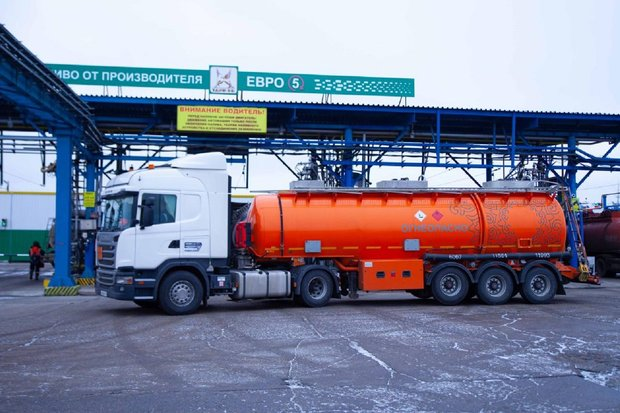
The expert of the head company of TAIF Group is sure that the processes happening in the world economy when there is an attempt of pushing Russian businesses from all the sides fortify the fighting spirit of Russian businesses.
“An old saying puts it that Russia becomes stronger precisely when it is cornered in difficult conditions. At this moment, TAIF isn’t different from other Russia’s enterprises. We have a very strong staff here in Group, and amid the sanctions we are making our innovative ideas a reality and becoming stronger. A very good characteristic of TAIF employees is that we don’t look for excuses for a bad job, we look for opportunities to achieve the best results.”
Big plans for 2023
TAIF-NK highlights that any business’s main task is to make a profit. The company can meet all social commitments only working with a gain. And it is not only timely and full payment of all taxes and duties but also voluntary commitments made in environmental projects, support for historical and cultural landmarks, sports venues, clubs, development of medicine and care about health of the company’s workers and their family members. This is why TAIF-NK doesn’t mind spending money to develop the company, expand the production of high-quality and widely sought-after line of products.
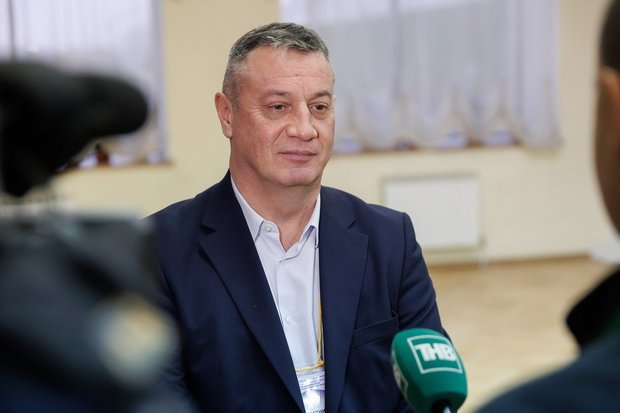
“We plan several projects in 2023. Something is still discussed, considered. Many things depend on the general macroeconomic and political situation. A whole pool of projects is being prepared. I cannot yet talk about all of them, I won’t run ahead of time. I will just say that it is linked with further refining of oil products we have in our basket,” Senior Adviser to Director General of TAIF JSC in Petrochemistry Farid Minigulov added some intrigue in an interview with Realnoe Vremya.
Chief engineer of TAIF-NK JSC Alexey Khramov clarified the plans for the foreseeable future:
“In 2023 and in the foreseeable future, the main task for TAIF-NK is to increase the efficacy of the oil refining production pattern. There is the task of reducing the production of dark oil products as much as possible and master new technologies and units. We can talk about it now: design studies are about to start, equipment is about to be ordered. In particular, it is the processing of tar hydrocracking residue in the VVC into demanded products for the metallurgical industry and as feedstock for further refining in our unit.”
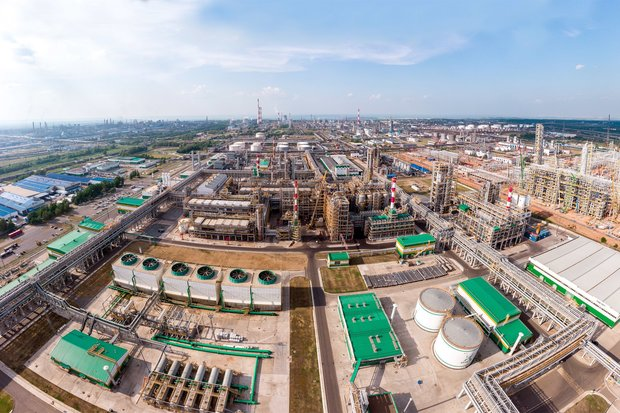
“A lot of works are done to sell new products. Something comes from those products we already produce and we are looking for new possibilities of refining this product into the one demanded by the market. We have a lot of programmes of this kind,” head of the Reequipment and Promising Development Department of TAIF-NK JSC Niyaz Khamidullin confirmed the scale of the plans.
Director General of TAIF-NK JSC Maxim Novikov stressed:
“‘The time chose us’ is one of our mottos and slogans. And it is true. Once we were one of the first in Russia to produce Euro 5. And I remember how we did it. Today hydrotreatment is a piece of cake. While at that moment from a perspective of difficulty it was.. Heavy Oil Residue High Conversion Facility, something happened every day, while today it is a simple process, and the folks — machinists and operators do switches we used to do at the level of plant directors. The next product TAIF-NK is now working on will also be a step forward. Now we are doing an experiment but we are already starting the industrial production. It will be a product that will be qualitatively different from others. I see discoveries and prospects in our past, present and future. All this was done, is done and will be done together with the staff of TAIF-NK and TAIF.”
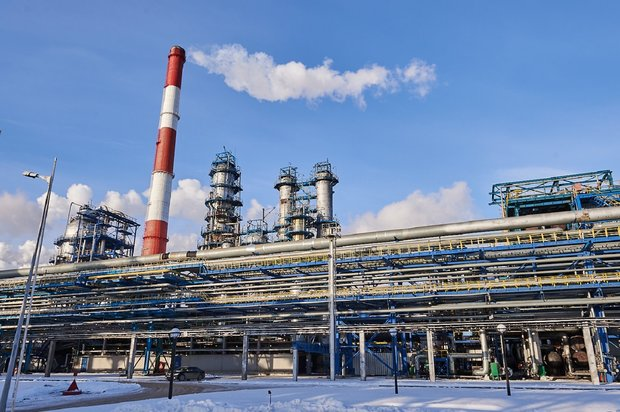
It is also planned to do a large-scale to improve current production processes and quality of products that are made, to expand the possibilities of adaptation of these features for specific clients’ needs. The company also calls the reinforcement of current commercial links as well as the search and entrance to new outlets as an important task at all times.
Also, in 2023, the company prepares to celebrate its 25th jubilee.